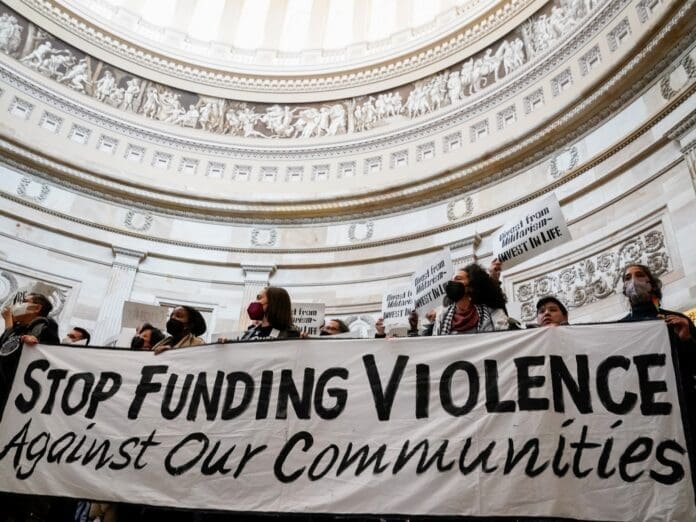In early November, President Joe Biden’s administration revealed a national strategy to combat Islamophobia, as reports of anti-Muslim incidents continued to increase in the United States. This initiative came in the wake of a series of violent attacks targeting Muslim and Palestinian Americans, including the killing of a six-year-old Palestinian American child and a 66-year-old Sikh man. Several academic institutions also implemented anti-Islamophobia measures, but their effectiveness has been called into question.
Despite these efforts, the White House strategy has faced significant criticism from both social media users and Muslim American communities. Many have rejected attempts to shift the focus away from systemic political demands to combat intolerance and exclusion. This marks a departure from the approach taken by Muslim American advocacy and organizing over the past two decades, which primarily focused on cultural acceptance and interfaith dialogue.
The recent violence against Muslim and Arab communities has sparked a groundswell of activism demanding an end to US support for Israel and an immediate ceasefire in Gaza. This mobilization represents a notable shift in Muslim American consciousness, as it rejects the idea that cultural tolerance and interfaith understanding can effectively combat the problems tied to US imperialism and the ongoing Palestinian-Israeli conflict.
In the wake of 9/11, many Muslim American organizations emphasized cultural awareness initiatives meant to challenge misconceptions about their communities. However, some voices within the community criticized these efforts, arguing that they were overshadowing the colonial violence against the Palestinian people and distracting from the larger issues at hand.
Recent fissures within the Muslim and Arab communities have led to a united front in demanding a shift in US Middle East policy. The rejection of faithwashing attempts and the growing support for Palestinian liberation signal a seismic shift in Muslim American consciousness, highlighting a demand for more substantive political change rather than just cultural tolerance initiatives. Whether this shift will influence voting behavior or contribute to a move away from two-party electoralism remains to be seen.
